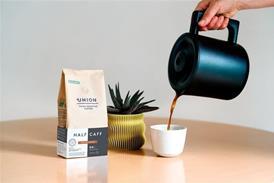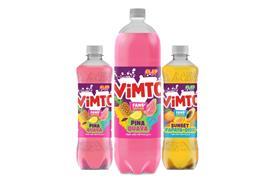Close menu
- Home
- Retail & Wholesale
-
Products & Suppliers
- Back to parent navigation item
- Products & Suppliers
-
Product Categories:
- Back to parent navigation item
- Product Categories:
- Alcoholic drinks
- Bakery
- Cereals & breakfast
- Cheese
- Chicken & poultry
- Chocolate
- Confectionery
- Crisps, nuts & snacks
- Dairy
- Fish
- Fresh produce
- Frozen
- Household
- Meat
- Own Label
- Sauces & condiments
- Seasonal
- Soft drinks
- Vaping
- Vegan & plant-based
- World foods
- Suppliers
- People
- Reports & Data
-
Topics A-Z
- Back to parent navigation item
- Topics A-Z
-
Popular topics:
- Back to parent navigation item
- Popular topics:
- Cost of living crisis
- Crime
- Deposit Return Schemes
- Finance
- Government & Regulation
- Health
- Inflation
- Loyalty
- Marketing
- Mergers & Acquisitions
- New Product Development
- Sourcing
- Supply chain
- Sustainability & environment
- Technology
- Ultra Processed Foods
- Vaping
- A-Z all topics
- Content by type:
- Events
- Ask iA (beta)
- Subscribe now
City snapshot: Britvic sales held back by 6.6% slump in Robinsons and stills division
By Ed Devlin2018-01-31T09:02:00

Britvic has increased revenues in the first quarter by 3.3% to £337.2m as Pepsi Max helped its carbonates division outperform the soft drinks market in the UK, but sales of its range of still products slumped again. Plus, Dairy Crest sales up 7% in the first nine month of its financial year as all its brands perform well. And Raisio to enter talks with 115 staff and also considers sale of feed business as turnaround attempts continue.
Already have an account? Sign in here
Already have an account? Sign in here
You’ve used up your article allowance






